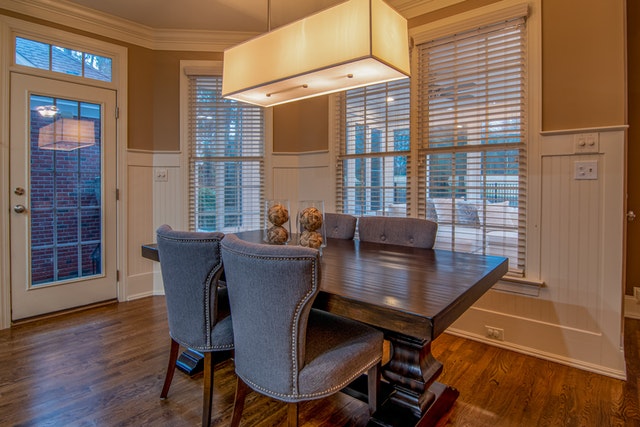Are you considering renting your first office space? If yes, you need to keep in mind some of the essential considerations to do it. Renting your first office space can be the first step toward your business. However, if you overlook the vital aspects, you will rent a space that is not suitable for your business. Here are a few tips on how you can do that:
Initial steps to prepare yourself ahead
Renting your first office space can be an exciting step for your business, but there are some things to be aware of when choosing a space.
Additional expenses: Some landlords don’t allow significant changes, and you may be required to pay for damages if you try. Additionally, the length of the lease can be a factor in your decision. You don’t want to be locked into a long-term lease and stuck with the space for a long time.
Hidden costs: Although rent is the primary expense, you will also have many expenses that could quickly add up. Many landlords also include other costs in their lease, and a few can add up to a significant bill. Ensure that you understand these expenses and look for provisions that allow you to sublet or assign the lease.
Location and space: When renting an office space, location is of the utmost importance. It must be convenient for all team members to get to work. It should also be accessible to clients and potential talent. Moreover, the office space should have other spaces that your team will need to work. For instance, a kitchen and a dedicated conference room are functional spaces for a business.
Finding a commercial real estate agent or broker to simplify the process
Hiring a real estate agent or broker can speed up the process of finding your first office space, especially if you’re just starting. A broker will have connections and experience in the market, but they can also assess a tenant’s creditworthiness, financials, and leasing history.
Can help you get the best deal: In many cases, a broker can help you secure a space at the right price, with favorable terms and conditions. Brokers can also assist you in negotiating a lease and can, avoid common pitfalls and save you time.
Convey your needs: To find the best space for your business, start by defining your needs. Share with them what features and amenities your company needs and what budget you have available. Make sure to include both “must-haves” and “nice-to-haves” to avoid wasting time on non-conducive spaces. Make a short list of potential spaces so your broker can review them and contact the best spaces on your behalf.
Saves time: You can save a lot of time by hiring a commercial real estate agent or broker to help you. These brokers have more connections and experience in the business than a regular person and are likely to get better deals for you. Furthermore, they’ll coordinate move-in preparation and prevent any mistakes in the process.
Keeping a strict budget
Renting your first office space can be expensive, but it is essential to stick to a budget. Too much money spent on office space can stunt your business’ growth or put it out of business altogether. Keeping a tight budget is essential for renting your first office space, but it doesn’t mean you should skimp on features. You should consider the location of your new office, as this will impact how much it costs to rent it.
Know the total cost: Renting an office may seem overwhelming, but it’s important to know the total cost before signing a lease. Many renters fail to factor in the extra expenses of remodeling and designing the space.
Check with your landlord: While there’s nothing wrong with customizing your space and choosing your own furniture, you should know that your landlord may have certain rules about the number of people who can modify a space. While most landlords are ok with minor changes, you should check with your landlord before you start making changes.
You should also check with your landlord about any additional fees associated with the office space. If you can’t afford to cover these extra costs, consider renting office space at a lower price. This will make it easier to find an office space that meets your budget and needs.
Essential considerations
There are many factors to consider when renting your first office space.
Location: The first is location, which can make a big difference in your staff’s commutes. A great office location will be near public transportation and close enough to potential talent. It will be convenient for clients and potential employees to visit. Consider whether your office space is in a good area or a bad one. A poor neighborhood will reflect poorly on your company and your employees. Ask other businesses for recommendations about the neighborhood. You can also research the area online.
The number of employees: You should also consider how many people will be working from the office space at the same time. If you have several employees, you may need more than one floor or a third floor. You should also consider whether or not the floor plan is appropriate for the size of your business. You should always select a space that has enough space to accommodate all employees comfortably. A small space with sufficient space may be just what you need for your business.
Building amenities
Before choosing a space for your first office, you should consider nearby amenities.
Should have the basic amenities: You want to be close to basic amenities, such as grocery stores, restaurants, dry cleaners, and doctors’ offices. The building should also have ample parking for tenants. Having a convenient place to park your car is important for your business’s growth. You can even opt for a building with a gym.
Building amenities: Amenities in an office building are essential to a productive working environment. You can also enjoy conveniences such as 24-hour security, reception, Internet, and guest WiFi. Some buildings have shared spaces like board rooms and lunch rooms. If you plan to use the facilities in a building that offers such amenities, ask the leasing agent about them. Ask about their prices and benefits. Building amenities can significantly increase the value of your office space.
Customize the space: You might also want to customize the office space. Depending on your team’s needs, you may need extra space to grow. Ample space for a meeting room, cafe, or bank is also important. You should also consider the length of the lease as you would not want to lock yourself into a long-term commitment. Consider the cost before renting your office space and make sure you have the budget for the monthly rent.
Making an offer to rent office space

Before offering to rent office space, you must gather all your financial records.
Previous accounting records: Get your accounting records for the last two to three years. If you are just starting, you might not have this information. However, you can gather the documents to show that you can meet your lease obligations. Also, make sure to check your personal and business credit because this is one of the things that potential landlords look at when evaluating lease offers. Be sure to obtain these documents before the lease negotiations.
Details of the assets: Include details such as the number of employees to be housed in the building and your hiring plans for the near future. You should also include any machinery and equipment you will need for your business and the number of parking spaces that will be provided. You can also include a picture of your company’s branches and contact information. Do not forget to include any other special requirements or requests to make the rent price more affordable.
Consider asking for concessions: The landlord may agree to a free rent period if the lease is for a certain number of months. If the landlord does not offer such a concession, try to negotiate for more per square foot. A landlord might be willing to give you a higher rent if you agree to make renovations and enlarge the space to accommodate your needs. However, you must clearly understand all the costs involved in leasing office space.


